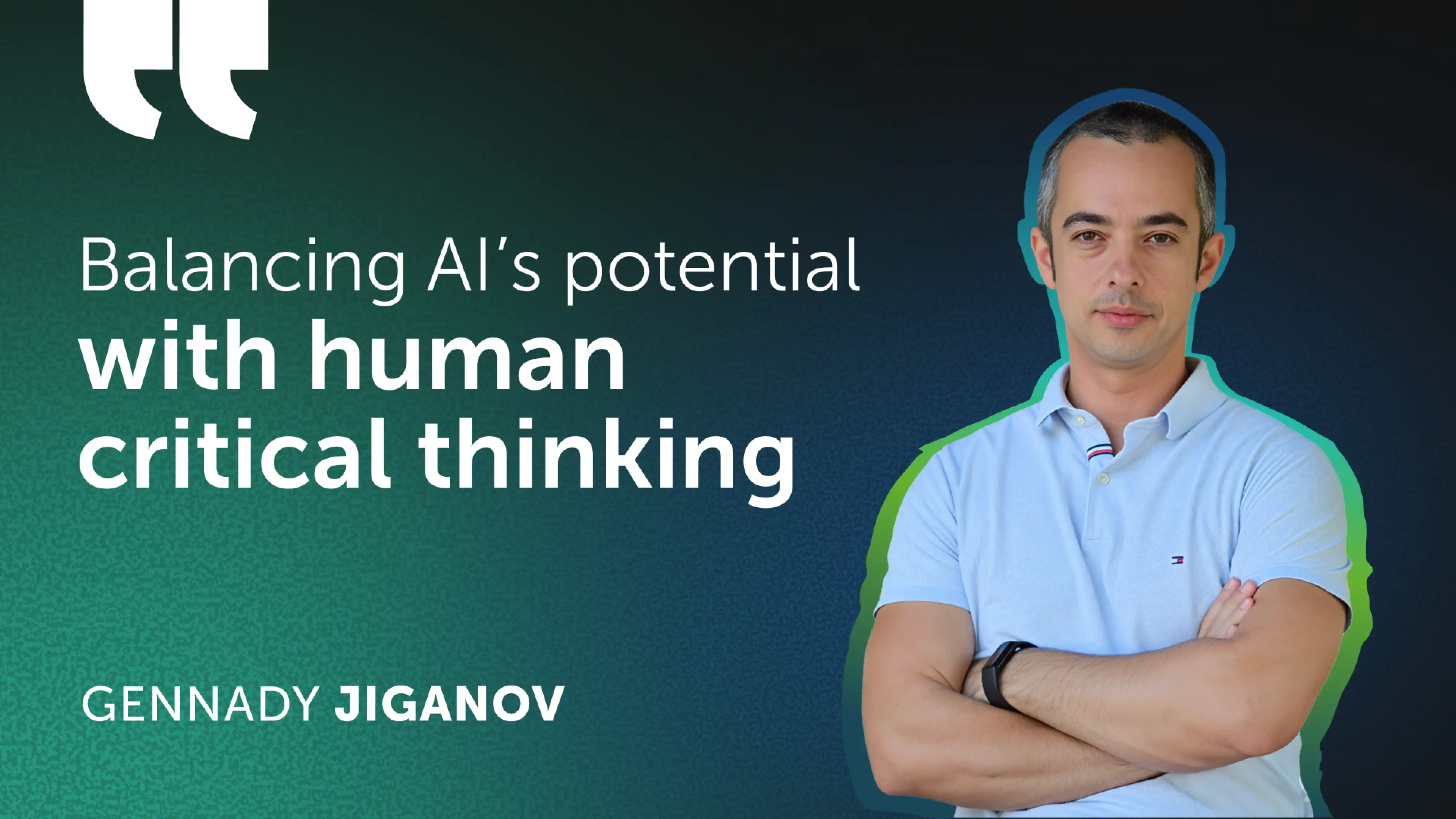Balancing AI’s potential with human critical thinking
Together with FR Media, we’re continuing our series of inspiring stories from tech experts about their journey into AI. Gennady Jiganov, Lead Software Engineer at EPAM, shares his thoughts on how AI is reshaping the way we work, innovate, and think about the future.

“Practical experimentation rather than theoretical discussions”
— My first meaningful encounter with generative AI went beyond casually chatting with LLMs. It happened during a business trip to Amsterdam, where I had just been named tech lead for a development team. The client had banned public LLMs like ChatGPT due to data and intellectual property concerns.
Curious and constrained, I installed Ollama and began experimenting with small local models on my laptop. Before the client lifted its AI restrictions, I had already managed to get a local model to deliver real, useful value for our work. This hands-on approach shaped how I view AI today — I gravitate toward practical experimentation rather than theoretical discussions.
“AI apocalypse is only a matter of time”
— The day an LLM started producing working code in a language I didn’t know was the moment I got hooked on AI. Maybe the model improved, maybe my prompts did, but it was clear I had to learn how to use this tool well.
Another “wow” moment came unexpectedly while scrolling through YouTube. I stumbled upon a 1923 children’s fairy tale poem, Moydodyr by Korney Chukovsky, transformed by AI into an epic metal opera. The most surprising part? It actually sounded good — my son agreed, which is the ultimate test. That moment made me realize that a kind of “AI apocalypse” (in a good way) is only a matter of time.
“Outsourcing too much of our thinking may weaken our cognitive abilities”
— As AI systems rapidly improve, they still produce unreliable or misleading information. Critical thinking is essential to navigating this reality.
History shows that when humans outsource certain skills, we risk losing neural connections and abilities tied to those tasks. For example, once cars became common, most people no longer needed to know how to ride a horse, and the disappearance of that skill affected balance, coordination, and spatial awareness.
The same risk applies to AI — if we outsource too much of our thinking, we may quietly weaken our cognitive abilities. That’s why it’s crucial to stay engaged and sharpen critical thinking skills as AI evolves.
For anyone looking to deepen their understanding of AI, I highly recommend Stephen Wolfram’s article: What Is ChatGPT Doing and Why Does It Work? It’s very long and technical, but worth reading.
Think of AI as a tool that can help you do your job better. Allocate time to learn how to use it effectively and try to automate some of your tasks with AI. Experimentation is key — don’t wait for someone else to hand you a perfect workflow.
For me, staying focused while working with AI isn’t much different from staying productive in general. Over the years, I’ve tried almost every method for improving focus, but the best results come from supporting my body with quality sleep, proper nutrition, and regular exercise. The bonus? I feel better overall.
“I hope AI will need less human supervision”
— I hope AI will free us from boring and repetitive tasks, allowing us to focus on creative and meaningful work. However, in practice, the opposite often seems to be happening.
Today, AI writes emails, generates code, and produces images, while our role is often just to review, copy, and paste. AI can create text, pictures, videos, and music, but it still can’t cook dinner, iron a shirt, or move laundry from the washer to the dryer.
In the short term, I imagine a future where we delegate tasks to AI agents, they execute them, and we step in mainly to review and refine the results. In the long term, I hope AI will need less human supervision, eventually automating the production of goods and services. Ideally, this would allow everyone to receive a basic income and decide whether to work for additional income or pursue other passions.
Unfortunately, I don’t think this vision will become reality before my retirement.
“Ghost in the Shell makes me think about AI’s consciousness”
— My favorite AI-related movie is Ghost in the Shell. I love the hardcore cyberpunk vibes, but what truly fascinates me are the philosophical questions it raises. For example, does “true artificial intelligence” have consciousness?


_(1).png)
.png)